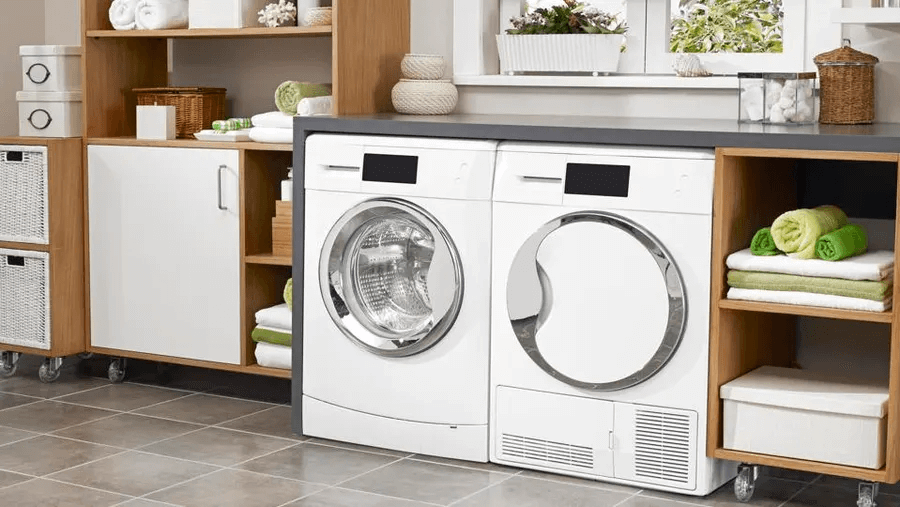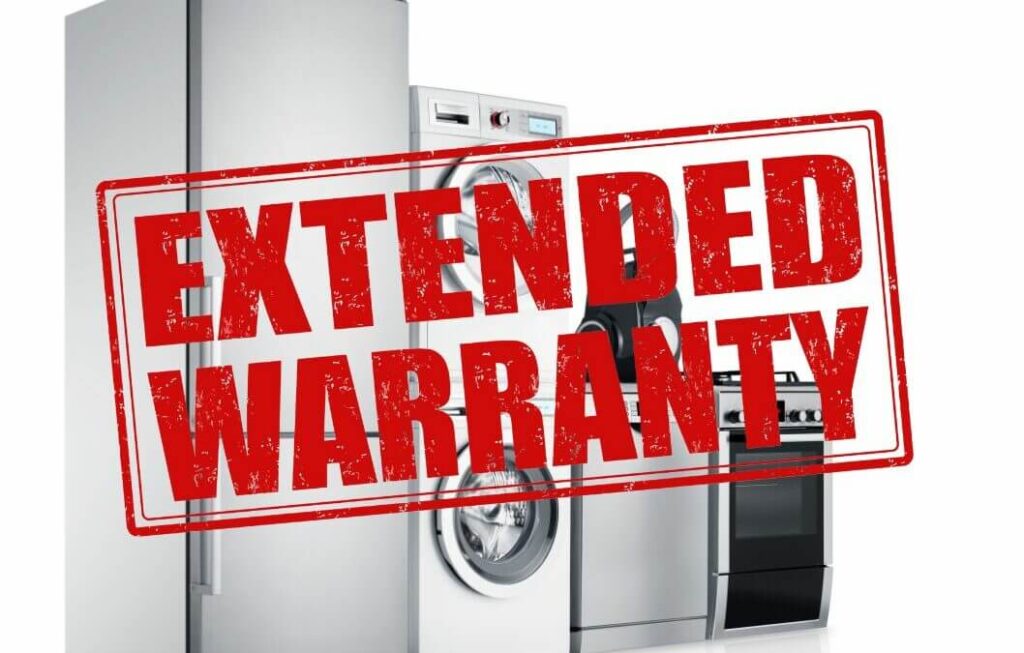
Extended warranties for appliances have become as common as salt and pepper on the dining table. They’re offered almost every time you make a significant appliance purchase, leaving you with that perennial question: “Should I or shouldn’t I?” We’re diving deep into the world of appliance extended warranties, exploring the pros, the cons, and everything in between to help you make an informed decision.
Understanding Appliance Extended Warranties
Before we dive into the “worth it or not” debate, it’s essential to understand what appliance extended warranties are all about.
An appliance extended warranty (also known as a service contract) is essentially a protection plan for your appliances. These plans promise to cover the repair or replacement costs of an appliance if it malfunctions during a specified period. While the standard manufacturer’s warranty usually covers the first year or two after purchase, extended warranties kick in after that initial coverage expires.
The Pros: Why You Might Say Yes
Let’s start by examining the reasons why someone might opt for an extended warranty:
- Peace of Mind: One of the most significant advantages of extended warranties is peace of mind. When you invest in a brand-new, shiny appliance, the last thing you want is to see it go kaput shortly after the manufacturer’s warranty expires. Extended warranties ensure that you won’t be left high and dry when your appliances decide to act up.
- Convenience: Many extended warranties come with additional benefits like free maintenance and quick repair services. So, if your dishwasher suddenly starts flooding your kitchen, you won’t have to scour the internet for a reliable repair service. Your extended warranty will have you covered.
- Savings on Repairs: Appliance repairs can be costly, especially for high-end appliances. With an extended warranty, you won’t have to foot the entire bill. The warranty provider takes care of the expenses, saving you a significant chunk of change in the long run.
- Transferability: Some extended warranties are transferable, meaning they can be passed on to the new owner if you decide to sell your home. It can be an appealing selling point, as it provides added value to your property.
The Cons: Reasons to Think Twice
While there are certainly benefits to extended warranties, there are also reasons to exercise caution:
- Cost: Extended warranties aren’t free. They add to the overall cost of your appliance purchase. This upfront cost can be a deal-breaker for budget-conscious consumers, as it can significantly increase the total expense.
- Limited Coverage: It’s vital to read the fine print before committing to an extended warranty. Not everything may be covered. For example, if your coffee maker’s espresso machine goes haywire, but it’s not included in the warranty, you could be in for an unexpected expense.
- Reliability of Appliances: Some appliances are built to withstand the test of time, and major breakdowns are relatively rare. In such cases, paying for an extended warranty might result in overpaying, as the appliance may never need significant repairs during its lifetime.
- Double Coverage: Many appliances come with a manufacturer’s warranty that covers them for a certain period. Adding an extended warranty could mean paying for coverage you already have, essentially doubling up on your protection.
Is It a Yes or a No-Go?
So, the million-dollar question remains: Should you invest in an appliance extended warranty? The answer isn’t universal and largely depends on your individual circumstances and preferences.
When to Consider an Extended Warranty

While not every consumer should rush to get an extended warranty, there are situations where it makes sense to invest in one:
- High-End Appliances: If you’ve splurged on high-end appliances that cost a small fortune, it’s wise to protect your investment with an extended warranty. The more you’ve spent on an appliance, the more critical it becomes to safeguard it from unexpected malfunctions.
- Clumsy Cooks and Frequent Accidents: Are you known for spilling red wine on your white kitchen appliances or accidentally dropping your phone into the sink while doing the dishes? If you’re a bit clumsy in the kitchen, it might be worth considering an extended warranty.
- Large Families and Heavy Use: In households with large families or where appliances are put to heavy and frequent use, the wear and tear on these machines can lead to more frequent issues. Extended warranties can be a lifesaver in such environments.
- Tech-Savvy Appliances: Modern appliances are more advanced than ever, often equipped with smart features and advanced technology. While these can enhance your daily life, they can also lead to higher repair costs if something goes wrong. Extended warranties can provide peace of mind for tech enthusiasts.
- Limited DIY Skills: If you’re not the handy type and can’t distinguish a wrench from a whisk, an extended warranty can be a reassuring safety net. It ensures that professional help is just a phone call away when your appliance goes on the fritz.
When to Skip the Warranty
On the flip side, there are instances where it makes sense to skip the extended warranty:
- Budget Shoppers: If you’re a budget-conscious shopper and are constantly on the lookout for deals, adding the cost of an extended warranty may not align with your financial strategy. In such cases, it’s often more sensible to pass on the warranty and set aside money for potential repairs instead.
- Short Manufacturer’s Warranty Period: Some manufacturers offer robust warranties that extend beyond the typical one-year period. If your appliance is already covered for an extended period, purchasing an additional warranty may not be necessary. Before you make a decision, be sure to check the duration of the manufacturer’s warranty.
- Durable Appliances: Not all appliances are prone to frequent breakdowns. Basic, durable appliances like traditional toasters and microwaves tend to have a long lifespan with minimal issues. For these types of appliances, an extended warranty is usually overkill.
- Emergency Fund Ready: If you’re the type of person who believes in preparing for unexpected expenses, you might already have an emergency fund in place. In this case, you could opt to use your savings for appliance repairs rather than purchasing an extended warranty.
The Cost vs. Benefit Equation
To make an informed decision about extended warranties, you need to weigh the potential costs against the potential benefits. Consider the following scenario:
Let’s say you’re considering a refrigerator priced at $1,500, and the five-year extended warranty costs $200. If you estimate that the refrigerator has a 20% chance of breaking down within those five years, the expected repair cost would be $300 (20% of $1,500). In this case, the extended warranty appears to be a sensible investment, as it’s less expensive than the anticipated repair cost.
However, if you believe there’s only a 5% chance of the refrigerator malfunctioning, the expected repair cost drops to $75. Suddenly, the $200 extended warranty doesn’t seem as attractive, as you’d be overpaying for coverage you might not use.
In essence, it’s all about calculating the likelihood of a breakdown and comparing it to the price of the warranty.
What to Look for in an Extended Warranty

If you decide to go for an extended warranty, be sure to do your due diligence and consider the following factors:
- Coverage: Not all extended warranties offer the same level of coverage. It’s crucial to understand precisely what is covered and what is not. Examine the terms and conditions to avoid any surprises when you need a repair.
- Duration: The duration of the extended warranty matters. Some warranties may cover your appliance for a few years, while others provide protection for a decade or longer. Choose a duration that aligns with your long-term plans for the appliance.
- Transferability: If you anticipate selling your home in the future, look for extended warranties that are transferable to the new owner. It can be an attractive selling point and may add value to your property.
- Service Quality: Research the reputation of the extended warranty provider. Look for reviews and ask around to gauge the quality of their customer service and their track record in fulfilling warranty claims.
- Cost: Extended warranty costs can vary from one provider to another. It’s a good practice to compare prices from different sellers and ensure that the cost of the warranty fits comfortably within your budget.
- Deductibles: Some extended warranties come with deductibles, meaning you’re responsible for a portion of the repair cost. It’s essential to understand the deductible amount and how it might impact your out-of-pocket expenses.
Wrapping It Up
In conclusion, the decision to invest in an appliance extended warranty isn’t black and white. It’s a choice that depends on various factors, including the appliance’s value, your lifestyle, and your budget.
When faced with the option of an extended warranty, take your time to assess your individual circumstances. Read the fine print, consider the costs, and reflect on your personal lifestyle and financial situation. Extended warranties can offer a lifeline when your appliances fail, but they can also be akin to buying insurance against an alien invasion – something you hope never happens.
Ultimately, the goal is to make an informed choice that aligns with your needs and preferences. With the right knowledge and careful consideration, you can confidently decide whether an appliance extended warranty is worth the investment. May your appliances always run smoothly and bring convenience to your daily life.
Appliance Extended Warranty FAQ
Got questions about appliance extended warranties? You’re in the right place! We’ve compiled a list of frequently asked questions to help you navigate the world of extended warranties for your appliances.
1. What is an appliance extended warranty?
An appliance extended warranty, also known as a service contract, is a protection plan that covers the repair or replacement costs of your appliances when they malfunction after the manufacturer’s warranty expires. These extended warranties provide peace of mind and financial protection against unexpected repair expenses.
2. How does an extended warranty differ from a manufacturer’s warranty?
A manufacturer’s warranty typically covers a new appliance for a limited period, usually one to two years. In contrast, an extended warranty takes effect after the manufacturer’s warranty expires and offers coverage for an extended period, often up to several years.
3. Are extended warranties for appliances worth it?
Whether an extended warranty is worth it depends on various factors, including the cost of the warranty, the price of the appliance, your lifestyle, and your willingness to assume repair expenses. High-end appliances, accident-prone households, and those seeking peace of mind often find extended warranties valuable. However, budget-conscious shoppers and those with durable appliances may choose to skip them.
4. What appliances can I get an extended warranty for?
Extended warranties are available for a wide range of appliances, including refrigerators, ovens, dishwashers, washing machines, dryers, microwaves, and more. The availability of warranties can vary depending on the appliance and the manufacturer.
5. What’s typically covered by an extended warranty?
The coverage provided by an extended warranty can vary. Common inclusions are repair and replacement costs for mechanical and electrical failures. Some extended warranties also cover wear and tear. Be sure to read the terms and conditions to understand precisely what is covered.
6. What’s typically not covered by an extended warranty?
Extended warranties usually have exclusions, and they may not cover certain issues. These exclusions may include pre-existing conditions, cosmetic damage, misuse or abuse, and damage caused by natural disasters. Always check the warranty’s fine print to know what’s not covered.
7. How do I decide if I should purchase an extended warranty?
When deciding whether to invest in an extended warranty, consider factors such as the appliance’s cost, your budget, your history of appliance repairs, and your personal comfort level. Review the manufacturer’s warranty terms, assess the appliance’s durability, and calculate the potential repair costs. Weigh these factors against the price of the extended warranty to make an informed decision.
8. Can I purchase an extended warranty at any time?
While you can often purchase an extended warranty at the time of appliance purchase, you may also have a grace period after the initial purchase to buy one. Be aware that the options and terms for extended warranties can change over time, so it’s best to make a decision relatively soon after your appliance purchase.
9. Can I transfer my extended warranty to a new owner if I sell my appliance?
Some extended warranties are transferable to the new owner if you sell your home or the appliance itself. This can be a valuable selling point when you’re looking to part with your appliance.
10. How do I choose a reliable extended warranty provider?
To select a reputable extended warranty provider, do your research. Look for online reviews and testimonials, inquire about the provider’s claim process and customer service, and compare prices and coverage options from different providers. A trusted and established warranty provider can offer you peace of mind.
11. Do extended warranties come with deductibles?
Some extended warranties may include deductibles, which are out-of-pocket expenses you must pay for each repair or service request. Be sure to understand the deductible amount and how it may impact your overall costs.
12. What should I do if my appliance malfunctions?
If your appliance experiences an issue during the extended warranty period, contact your warranty provider as soon as possible. They will guide you through the claims process and arrange for repair or replacement as per the terms of your warranty.
13. Can I cancel an extended warranty if I change my mind?
Extended warranties often have a grace period during which you can cancel and receive a full refund. Be sure to review the warranty’s terms and conditions for the specific cancellation policy.
14. Are extended warranties available for used appliances?
While extended warranties are more commonly associated with new appliances, some providers do offer coverage for used appliances. The availability and terms for used appliance warranties can vary, so it’s essential to research your options.